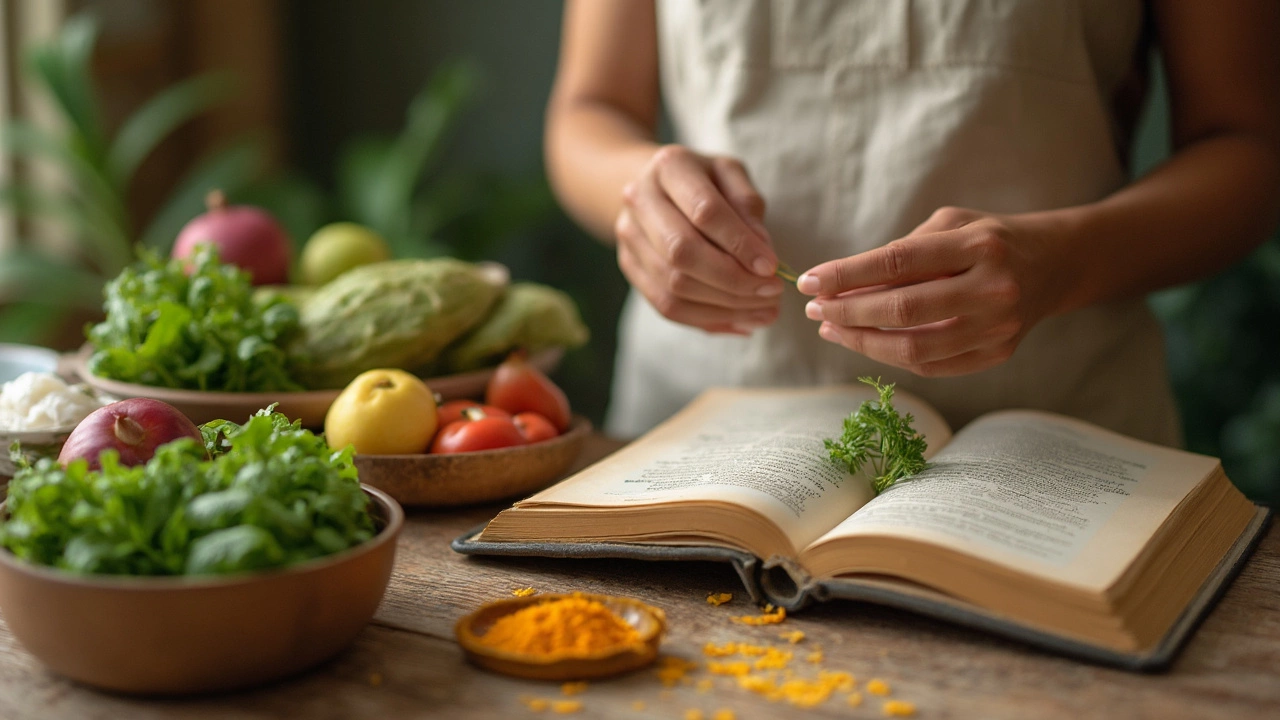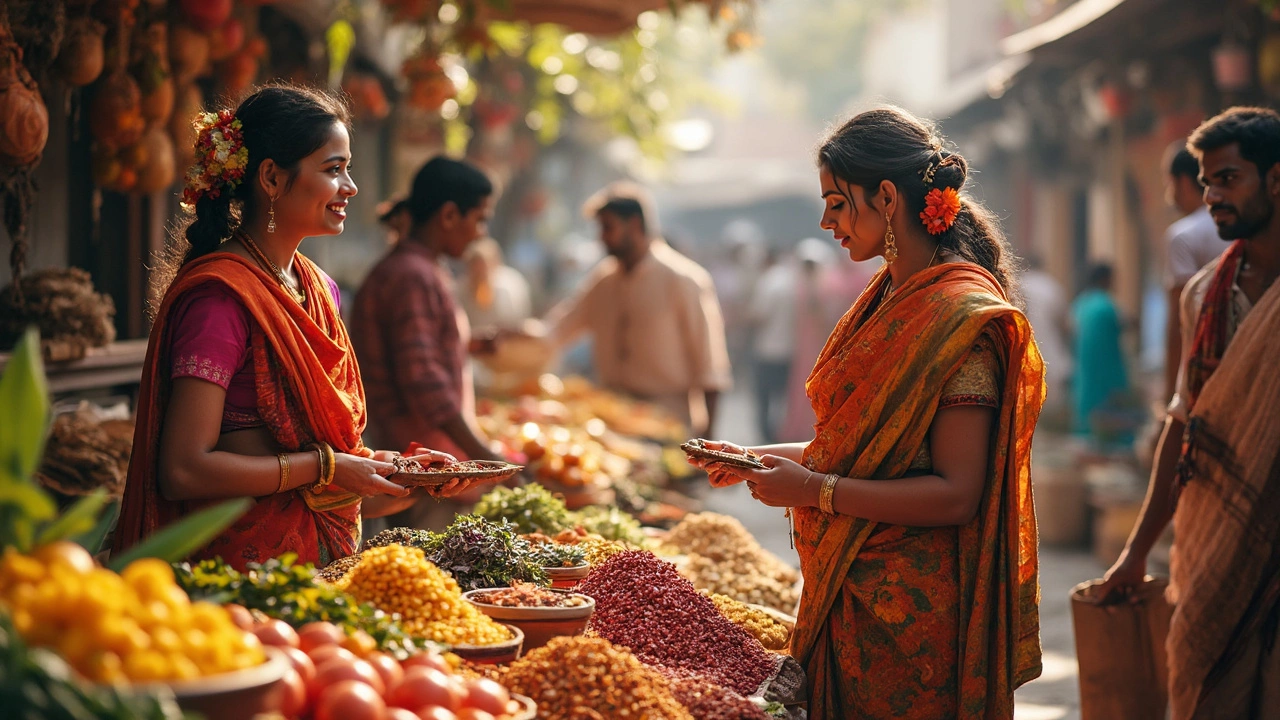Ever wondered why some foods just don't sit well with you? According to Ayurveda, the answer might lie in their inflammatory properties. This ancient Indian wisdom sees food as more than just fuel—it’s about nourishing your mind, body, and soul. But not all foods are created equal, and some can ignite inflammation, throwing your system out of balance.
So what causes this fiery reaction? Think of it like adding too much spice to an already simmering pot—you end up with a dish that's overwhelming and hard to handle. In Ayurveda, foods that are too hot, spicy, or processed may trigger this effect, making them culprits for inflammation.
Before you rethink your grocery list, let's dig into why these foods aggravate your system and how recognizing them can help you tweak your diet for a healthier you.
- Understanding Inflammation in Ayurveda
- Foods to Steer Clear Of
- The Role of Doshas
- Balancing Your Diet
Understanding Inflammation in Ayurveda
In Ayurveda, inflammation isn't just a medical term; it's more like an alarm signal from your body, telling you that something's off balance. This system of medicine relies on balancing the three doshas—Vata, Pitta, and Kapha. When these energies are out of sync, diseases, including inflammation, can crop up.
What Causes Inflammation?
Inflammation in Ayurveda is often linked to an excess of the Pitta dosha. This fiery dosha, when heightened, can create heat and inflammation in the body. What kicks off this imbalance? Well, certain inflammatory foods play a big role.
Food and Inflammation
The Ayurvedic perspective carefully examines how food properties—like taste, energy, and post-digestive effect—affect your body's balance. Hot and spicy foods, for instance, are known culprits. They might taste great, but they intensify the Pitta, leading to an inflammatory response. Processed foods and those high in refined sugars can also disrupt your body’s natural harmony.
Signs of Inflammation
- Frequent indigestion
- Redness or heat in the skin
- Joint discomfort
- Unexplained fatigue
Noticing any of these? They might be signs your body is dealing with more inflammation than it should.
Understanding these signs and the impact of certain foods can keep your body running smoothly. Want to fight inflammation the Ayurvedic way? It's all about what you eat and how it aligns with your dosha.
Foods to Steer Clear Of
When it comes to keeping inflammation at bay, identifying potential triggers in your diet is key. Ayurveda points out several common culprits. Let's break them down so you can make informed choices.
Processed Foods
We all know that processed foods aren't the healthiest. Loaded with preservatives, artificial flavors, and an overload of salt and sugar, they can wreak havoc on your system. Think of canned goods, deli meats, and instant noodles. They might be convenient, but they often bring along inflammatory side effects.
Spicy and Heat-Hit Foods
For those who love a kick in their meal, beware! Excessive hot spices, especially black pepper, garlic, and red chili peppers, can tip your internal balance. Ayurveda emphasizes on moderation, so it's not about cutting them out completely, but rather about reigning it in.
Sour and Fermented Foods
Sour foods like vinegar, pickles, and certain fermented items may disturb your digestive fire if consumed excessively. They can be delicious, for sure, but Ayurveda suggests limiting these to prevent potential irritation.
Dairy Products
While dairy can be part of a balanced diet, overconsumption or sensitivity can lead to congestion and, you guessed it, inflammation. Opt for lighter versions like skim milk, or consider alternatives like almond or oat milk if you notice a problem.
- Processed foods can increase inflammation due to high levels of additives.
- Spicy foods, while tasty, can lead to digestive imbalances if consumed in excess.
- Sour and overly fermented foods may disrupt your digestive processes.
- Dairy products can cause inflammation if not digested well.
So, navigating your diet with this in mind can significantly help in maintaining a harmonious balance, as recommended by Ayurveda.

The Role of Doshas
In Ayurveda, understanding the concept of doshas is like having a roadmap to your body's unique operating system. These doshas—Vata, Pitta, and Kapha—are essentially life energies that govern our physical and mental processes. Get them out of balance, and hello, inflammation!
What are Doshas?
Each person is thought to have a unique combination of these three doshas, though one is usually more dominant. Vata is all about movement, Pitta covers transformation (think digestion and metabolism), and Kapha is stability and structure. When your dominant dosha gets aggravated, it throws the others out of sync too. Keep it balanced, and you’re golden.
Connecting Doshas with Diet
Ever noticed how certain foods just don’t agree with you, even if they’re fine for your buddy? That’s often your doshas talking. For instance, Vata-type might find raw, cold foods unsettling, while Pitta types might get fired up (literally!) by spicy food. Meanwhile, those with Kapha in plenty should steer clear of heavy and oily foods that make them feel sluggish.
Balancing Doshas to Reduce Inflammation
- Vata: Steer towards warm, moist foods that are easy to digest. Think cooked grains and juicy fruits.
- Pitta: Cool things down with sweet, bitter, or astringent foods. Greens and cooling fruits can be your allies here.
- Kapha: Lighten your plate with warm, spicy, or bitter flavors. Dry foods, like crackers, can also balance things out.
Think of your meal plan as a bespoke diet where you adjust based on what your body’s telling you, ensuring you’re avoiding those inflammatory foods that can disrupt your inner peace.
Balancing Your Diet
Finding the right balance in your diet doesn’t have to be complicated. In Ayurveda, making small, mindful adjustments can go a long way in maintaining harmony within the body. So how do you keep those pesky inflammatory foods at bay and embrace a more balanced approach?
Incorporate Anti-inflammatory Foods
Start by adding foods that naturally cool and soothe the body. Think of leafy greens like spinach and kale. They're rich in antioxidants and help combat inflammation. Fruits such as berries, apples, and pears also make the list for their anti-inflammatory properties.
Pay Attention to Your Doshas
Your personal dosha—or body constitution—in Ayurveda plays a crucial role in what you should eat. Vata types, characterized by air and space, often benefit from warm, moist foods like stews. Pitta types, with their fiery nature, should aim for cooling foods like cucumbers and melons. Kapha types can feel sluggish, so they'll thrive on light, spicy foods that balance their natural heaviness.
Opt for Whole, Natural Foods
Avoid the heavily processed stuff. Stick with whole grains, fresh vegetables, and beans. These options are not just less inflammatory but also packed with nutrients that your body craves.
Mind Your Spices
Spices can both inflame and heal, depending on how you use them. While hot spices like cayenne can increase inflammation, others like turmeric and ginger are celebrated for their healing touch. Stick with the ones that work for you and dial down the fiery ones.
Sample Ayurveda-Friendly Day
| Meal | Suggestion |
|---|---|
| Breakfast | Oatmeal with honey and almonds |
| Lunch | Quinoa salad with spinach, chickpeas, and a turmeric dressing |
| Dinner | Lentil soup with ginger and a side of steamed vegetables |
By understanding how Ayurveda suggests balancing your diet, you can create meals that support your well-being without sacrificing flavor or satisfaction. Remember, it’s about choosing foods that make you feel good every day.



